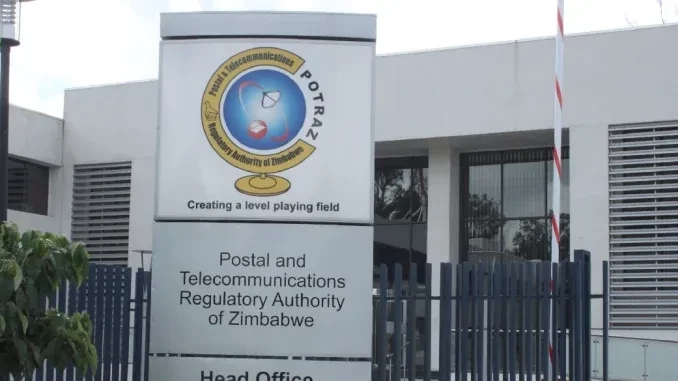
THE Postal and Telecommunications Regulatory Authority of Zimbabwe (Potraz) recorded a 95,3% growth in mobile operator revenue to $850,8 billion in the third quarter owing to inflationary gains.
In its third quarter report released last week, Potraz said total mobile operator revenues grew to $850, 8 billion in the third quarter from $435,7 billion in the second quarter.
“Mobile network operators generated $850,8 billion in the third quarter of 2023, up from $435, 7 billion recorded in the previous quarter.
“This translates to a 95,3% revenue growth in the quarter under review,” Potraz said.
“On the other hand, mobile network operators incurred $430 billion from $215, 8 billion incurred in the previous quarter.
“This translated to a 99, 3% growth in total operating costs. Total capital expenditure by mobile network operators grew by 27,1% from $26,7 billion to $33, 9 billion.”
However, in real terms, Potraz said: “revenues, operating costs and capital expenditure did not increase by the same margins due to the inflationary operating environment which has not spared any sector of the economy.
“This continues to stifle investment in infrastructure as evidenced by a decline in new terrestrial deployments in the quarter under review.”
- Potraz licences new mobile operator
- Econet raises tariffs to counter rising costs
- Telcos' tariff hikes cripple Zimbabweans
- Potraz appeals to govt on US$ pricing
Keep Reading
During the period under review, mobile voice traffic increased by 30% to record 3,29 billion minutes from 2,53 billion minutes.
Meanwhile, mobile internet and data traffic increased by 6,2% to record 44,67 petabytes, from 42,06 petabytes.
Mobile operators have been complaining about not being able to raise voice and data tariffs in line with inflation with the regulator only granting a 100% increment in October.
“The Postal and Telecommunications industry experienced growth in nominal revenues in the third quarter of 2023 influenced by inflationary pressures and depreciating currency,” Potraz added.
“However, operators’ revenue in real terms did not improve by the same margins as nominal growths in the quarter under review.
“With the increasing need for businesses to undergo digital transformation, positive sector growth is anticipated.
“The tariff reviews initiated are expected to improve Revenue-to-Cost ratios (RCRs) of operators. This will spur increased investment by operators and enhance service delivery through improved coverage and quality of service.”
Potraz said the sector still faced inadequate foreign currency resources that were required to upgrade, expand, and maintain telecommunication networks.
“Low disposable incomes in the country remain a major constraint on service affordability and uptake by postal and telecommunication users,” the regulator said.
“The sector is heavily affected by power outages, which increase the cost-of-service provision. These are operational realities that inhibit sector growth.
“The ongoing contractionary monetary and fiscal policy measures are expected to stabilise the macroeconomic environment, which is necessary to facilitate investment in the sector.”
Potraz said as investment levels and economic well-being improve, it was expected that demand for services will increase and boost the performance of the sector.
According to the regulator, the total number of active mobile telephone subscriptions grew by a margin of 6% to reach 14 794 579 as of the end of the third quarter, from 13 955 937 recorded at the second quarter.











